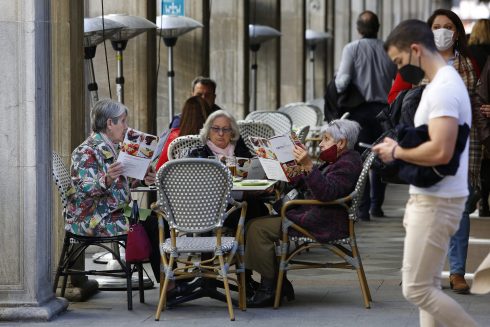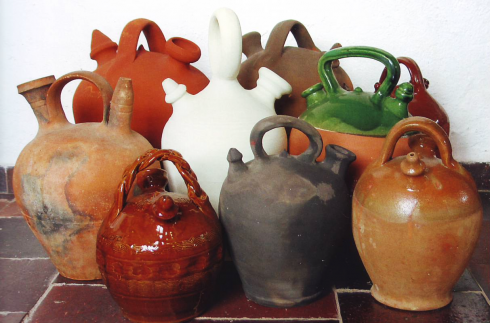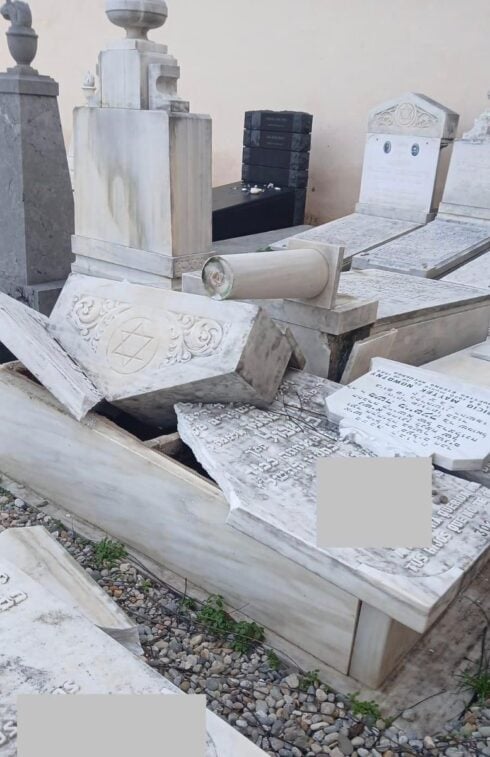THE former Catalan president Carles Puigdemont is expected to appear in an Italian court next week, but his arrest in Sardinia threatens to destabilize peace talks between Catalan separatists and the Spanish state.
The 58-year-old has returned to work at the headquarters of the European Parliament in Brussels after his arrest and release in Sardinia last week.
But he has been released on bail and has said that he will appear before an Italian court on October 4, a move which could see him potentially deported to Spain.
The arrest comes as a headache and at the worst possible time for the Sánchez government, which is working to cement a better working relationship with the pro-Catalan independence Esquerra Republicana de Catalunya (ERC) party, led by Pere Aragonés, and which holds the balance of power in the Catalan government.
The ERC have so far been prepared to continue to negotiate with the Spanish PM, who has gone to great lengths to calm the political waters in Catalunya.
In June the PM decided to pardon the nine Catalan leaders convicted for the 2017 independence attempt, and promised to pursue an amnesty for all those involved in the events, which could number into the thousands.
But the detention of Puigdemont has tested the already fragile relationship to the absolute limit.
The former president of the Catalan government has lived in self-imposed exile in Belgium since 2017, and is wanted by Spanish authorities for misuse of public funds and for organising a referendum deemed illegal by the Spanish Supreme Court.
As he returned to exile in Brussels, Puigdemont, a serving MEP, told a waiting crowd of journalists that he was happy to be back, he said: “I am also happy for the days we have spent in Alghero (the town where he was going to attend a Catalan cultural festival). It has been very interesting, very productive from all points of view and I have been able to reconnect with many people whom I had not seen for a long time”. He was also greeted by shouts of opposition from pro-Spain supporters.
Puigdemont’s lawyers are preparing an appeal that they will present to the European Union courts to request that his immunity is restored, after it was withdrawn in July.
On July 30th European court judges withdrew immunity for Puigdemont and two other allies, also MEPs wanted by Spanish authorities: Toni Comín and Clara Ponsat.
The court deemed the immunity unnecessary, and stated that it did not believe the trio were of any risk of arrest in any member state.
The court in Brussels understood that all European arrest warrants had been suspended.
But on October 4 an Italian court will have to decide whether or not to accept an active European detention order issued against Puigdemont by Spanish Supreme Court judge Pablo Llarena.
Lawyer Gonzalo Boye, who is in charge of coordinating the separatists’ legal strategy, argues that the three should continue to enjoy parliamentary immunity in Brussels as they are serving MEPs who attend the European Parliament.
Boye argues that the arrest and possible extradition is illegal and contravenes the decision of the EU court on July 30, which concluded that “nothing allows us to suppose that the Belgian judicial authorities or the authorities of another member state could execute the European arrest warrants issued against the plaintiffs, that could hand them over to the Spanish authorities ”.
Before leaving Sardinia, Puigdemont said that he planned to return to Italy on October 4 to testify in a hearing which could see him potentially deported to Spain.
Should Puigdemont be deported to Spain, his arrival would only enhance his reputation as a martyr of the Catalan cause.
It would cause uproar, and potentially lead to fresh protests across Catalunya, at a time when calm is needed.
Whilst the ERC do not currently plan on breaking with Sánchez, much depends on whether the Italian court decides to deport the former Catalan president.
Current president of the Generalitat, Pere Aragonés, has called for the withdrawal of all European arrest warrants against Puigdemont and the Catalan leaders currently in exile in Brussels, and who remain fugitives wanted by the Spanish state.
READ ALSO:
- LATEST: Italian court frees ex-leader Carles Puigdemont but Spain’s extradition request is pending
- Puigdemont: Exiled Catalan separatist leader detained by police in Sardinia faces extradition to Spain
- Former Catalunya separatist president Carles Puigdemont faces Spanish extradition after losing EU immunity
Click here to read more Catalunya News from The Olive Press.








